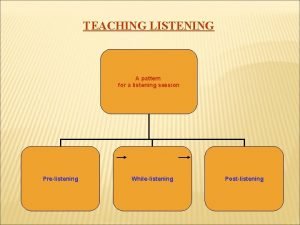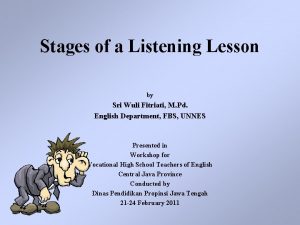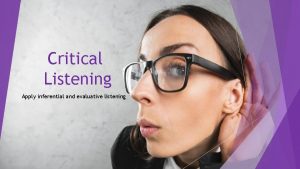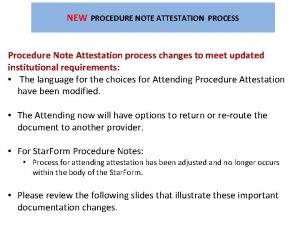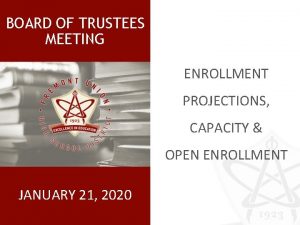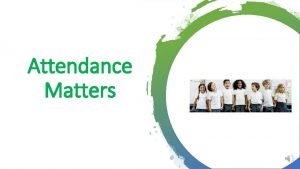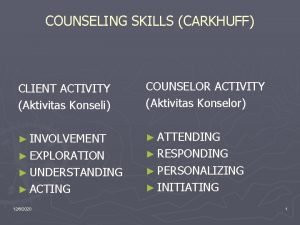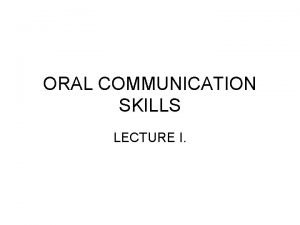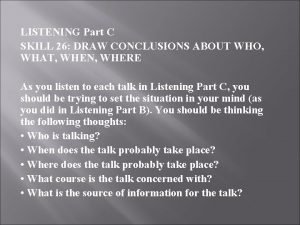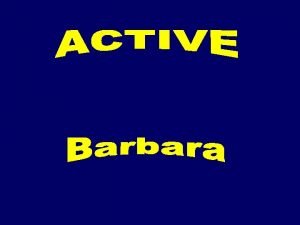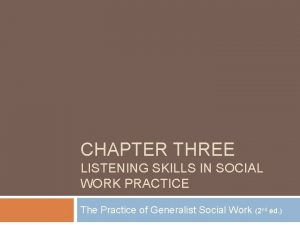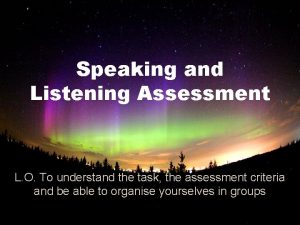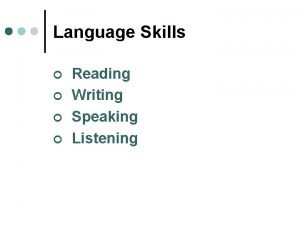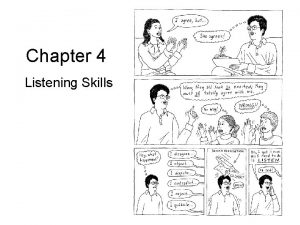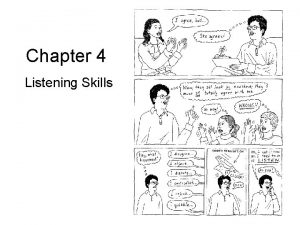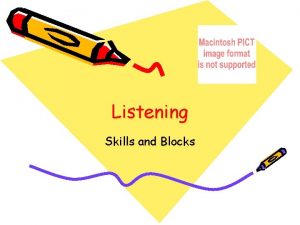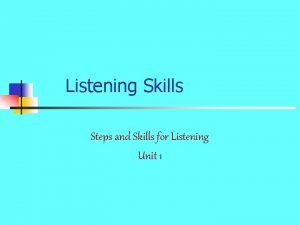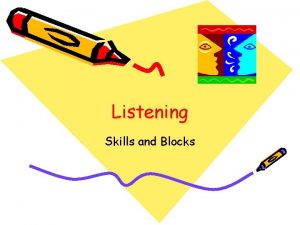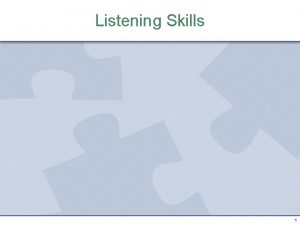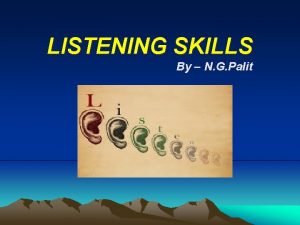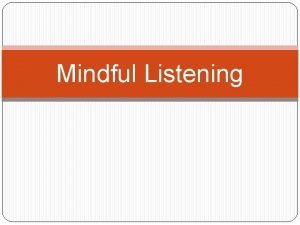Listening Skills Attending Skills u What are attending


















- Slides: 18

Listening Skills

Attending Skills u What are attending skills? – Body language – Asking questions – Avoid making noises – Occasionally respond (head nod, mmmhumm, OK, etc) – Pay attention to the speakers body language

u You are not using attending skills if you interrupt or finish sentences for the speaker.

At your table discuss u Write down an example of a time (or times) when you have felt that the person you were talking to wasn’t listening. How did that make you feel? u How did you know they weren’t listening?

Reflective Skills u What are reflective skills? – Checking with the speaker to see if you understand what he/she is saying. – Summarize what the person who is speaking just said to you. –

Examples of Reflective Listening: u ”If I understand you correctly, you are saying that…” u “Sounds you” like things didn’t go well for

Understanding the heart of what the speaker is saying: u To use the reflective skills to understand the behavior of the speaker, you can suggest your own interpretation of the behaviors. u Ex: pay attention to body language, and comment on it.

u For example: your client is glancing at the clock a lot. You might ask “I notice that you keep looking at the clock. Is there somewhere that you need to be?

Body Language Assessment: u Why would someone be moving their body around a lot during conversation? u Why would someone have a hard time maintaining eye contact? u Why would someone talk softly about a particular topic? u Why would someone stop talking altogether?

Introspect u In order to be able to reflect back what the person is saying, you can put yourself in the speakers position, and ask yourself “how would I feel in her/her place? ”

Ask Questions for Clarification u If the speaker seems confused you could ask: – “You look puzzled. Can I clear up some confusion? ” – So basically, you are feeling uncertain of your plans?

Paying Attention u To listen to a speaker with your full attention, you must listen to the words and pay attention to the behavior, body language, emotion, or feelings of the speaker.

Incongruence u What do you do when the feelings, body language or voice expressions do not match the verbal message, this is called incongruence.

u Reflective listening is an important skill because it helps the listener decipher unclear messages. u As the listener, you have to decide when reflective listening is appropriate and when it is not.

Listening Obstacles u What are some obstacles that can interfere with listening reflectively? – Listeners judgmental thoughts – Judgmental responses

u Examples of listening Obstacles: – Having to be right – Dismissing the speakers needs – Giving advice – Discounting emotions or thoughts – Comparing unfavorably

Clarifying Questions: u What are clarifying questions? – Questions asked to gain further insight. What clarification questions might you need to ask in response to the following: Your teacher says to you “Bring those papers on psychological research statistics to my classroom Tuesday”

Ways to improve your listening skills u Review the worksheet and discuss at your table the areas you need to improve on.
 Mikael ferm
Mikael ferm Listening pattern
Listening pattern Pre listening stage
Pre listening stage Active vs passive listener
Active vs passive listener Evalutavive listening
Evalutavive listening Sample erf form
Sample erf form Open house thank you notes
Open house thank you notes Attestation note
Attestation note Attending vs resident
Attending vs resident Why is attending school important
Why is attending school important Attending responding personalizing initiating
Attending responding personalizing initiating Oral communication conclusion
Oral communication conclusion Skill 26
Skill 26 Action plan to improve listening skills
Action plan to improve listening skills Listening skills examples
Listening skills examples Social work listening skills
Social work listening skills Success criteria for speaking
Success criteria for speaking Mindful listening key skills
Mindful listening key skills Slidetodoc. com
Slidetodoc. com

